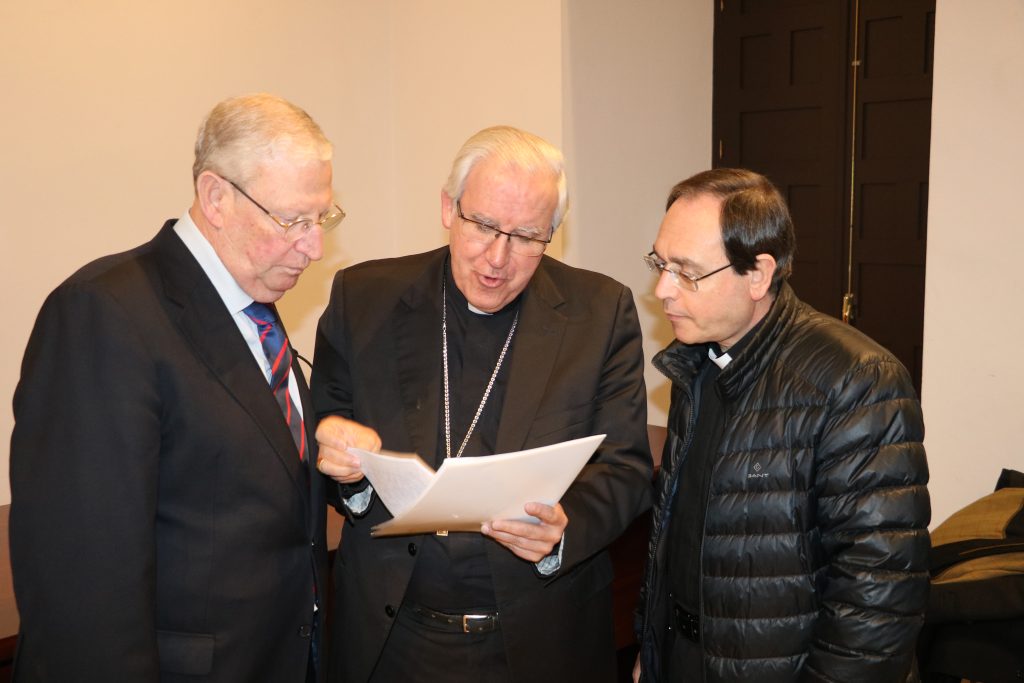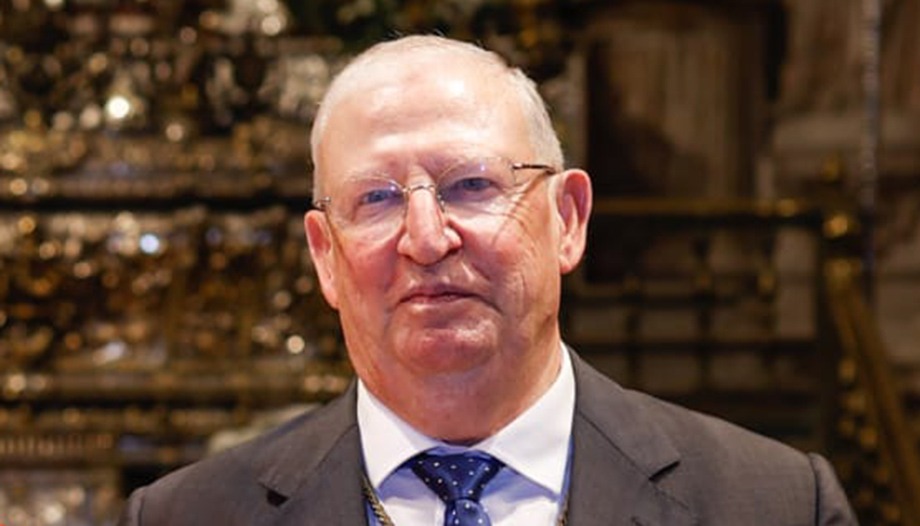Seville and Holy Week are two inseparable terms. The strength that have in Spain the Sisterhoods and Brotherhoods is especially noticeable in the Andalusian capital that welcomes, during the week of passion, more than 2 million people. But the brotherhoods and fraternities go beyond their penitential station.
Their evangelizing capacity touches the hearts of young and old and they are a dike to contain secularization. Proof of this is that, in the areas where popular piety is strongest, there are many more baptisms and sacramental marriages or, as I pointed out in this article, "the number of baptisms and sacramental marriages is very high, Marcelino ManzanoAccording to the Diocesan Delegate for Brotherhoods and Confraternities of the Archdiocese of Seville, almost half of Seville's seminarians come from the world of brotherhoods.
Francisco Vélez de Luna chairs the Council of Brotherhoods and Confraternities of Sevillea lawyer by profession, a deep believer and for many decades linked to the brotherhood worldIn this interview for Omnes, he stresses the need for ongoing formation for the friars since "formation is the nourishment of faith.
Being president of the Council of Brotherhoods in a city like Seville, epicenter of the popular religiosity of Passion, is something more than a "management position". What are your challenges?
-First of all, I must point out that the General Council of Brotherhoods and Brotherhoods of the City of Seville is a diocesan organization that groups together all the brotherhoods canonically erected in the city of Seville. Archdiocese of Seville. The President of the Council must ensure the fulfillment of the purposes established in the Statutes, approved by the ecclesiastical authority, as well as coordinate the work of each of the Sections in which the brotherhoods are organized: Sacramental, Penitential and Gloria.
We live in a society in which secularization is a reality that is advancing day by day. There are many who consider the confraternities as the "dike of containment" in the face of secularization...
-Popular piety is of great importance in the pastoral activity of the Church at the present time. It is undeniable the power of convocation of the confraternities and the devotion that inspire thousands and thousands of people. thousands of people. Hence, the ecclesiastical hierarchy increasingly values the importance of popular piety and a good proof of this is the II International Congress of Brotherhoods and Popular Piety The Archbishop has recently convoked a meeting for the coming year.
How is faith lived in a brotherhood? What do you say to those who accuse the confreres of living a "sentimental piety"?
- In a sisterhood, faith is lived on two levels. The first level is personal, the way in which each person approaches the unfathomable mystery of God and participates in the spiritual life to which we are all called, and this is done through sacramental practice.
The second level is the collective level, sharing the faith with the brothers, united by the same devotion to the titular friars, the formation activities that are organized and the charity, which should not only be material, but also of accompaniment to so many people who need the solidarity and warmth of their fellow men.
What does the Church ask of the confreres in our society?
-That they be consistent with the faith they profess. That there be unity of life, coherence between what is believed and what is practiced. This is the way in which every confrere, as a faithful son of the Church, must contribute to the building of the Kingdom of God. That synodality to which both the Pope and the rest of the pastors have been calling us lately.
Do you think that the spiritual accompaniment and formation of the friars should be improved to make them aware of their witness of faith?
-In recent years, a great deal of progress has been made in the work of the training and there is still a long way to go. In fact, formation never ends, since it is the nourishment of faith, of spirituality. A faith that does not develop remains stagnant, stagnant. It is necessary to take care of it with the formative task so that it makes us grow inside.

Beyond the day of the penitential station, how does a Brotherhood live throughout the year?
-The recent pandemic that we have suffered has brought to the surface the assistance work that the confraternities carry out, which is many and varied. All the sororities have their own Charity Council that channels this work, sometimes exclusively in charge of the brotherhood, sometimes united with others to promote the actions.
The Council itself has a welfare work, "Fraternitas Project", which it carries out in one of the most socially and economically depressed areas, in a neighborhood that, unfortunately, is among the three poorest in our country.
There are many people who, without the contribution of the sororities and the Church, through Caritas, can meet the most basic needs on a daily basis.
The Sacramental and Gloria Brotherhoods are also a strong reality in Seville and elsewhere. What role do they have within the Council?
-The Sacramental and Gloria Brotherhoods participate in the general purposes of any brotherhood: worship, formation and charity, although they have their own charisms.
The main task of the Sacramentals is to foster devotion and worship of Jesus in the Sacrament, truly alive and present in the Eucharist.
The brotherhoods of Gloria are eminently Marian. Most of them worship the mystery of the divine maternity of Mary. They are very intimate devotions, which bring together families and many settlements of the city, in which they vertebrate their neighbors as a true common denominator and a specific sign of identification.








